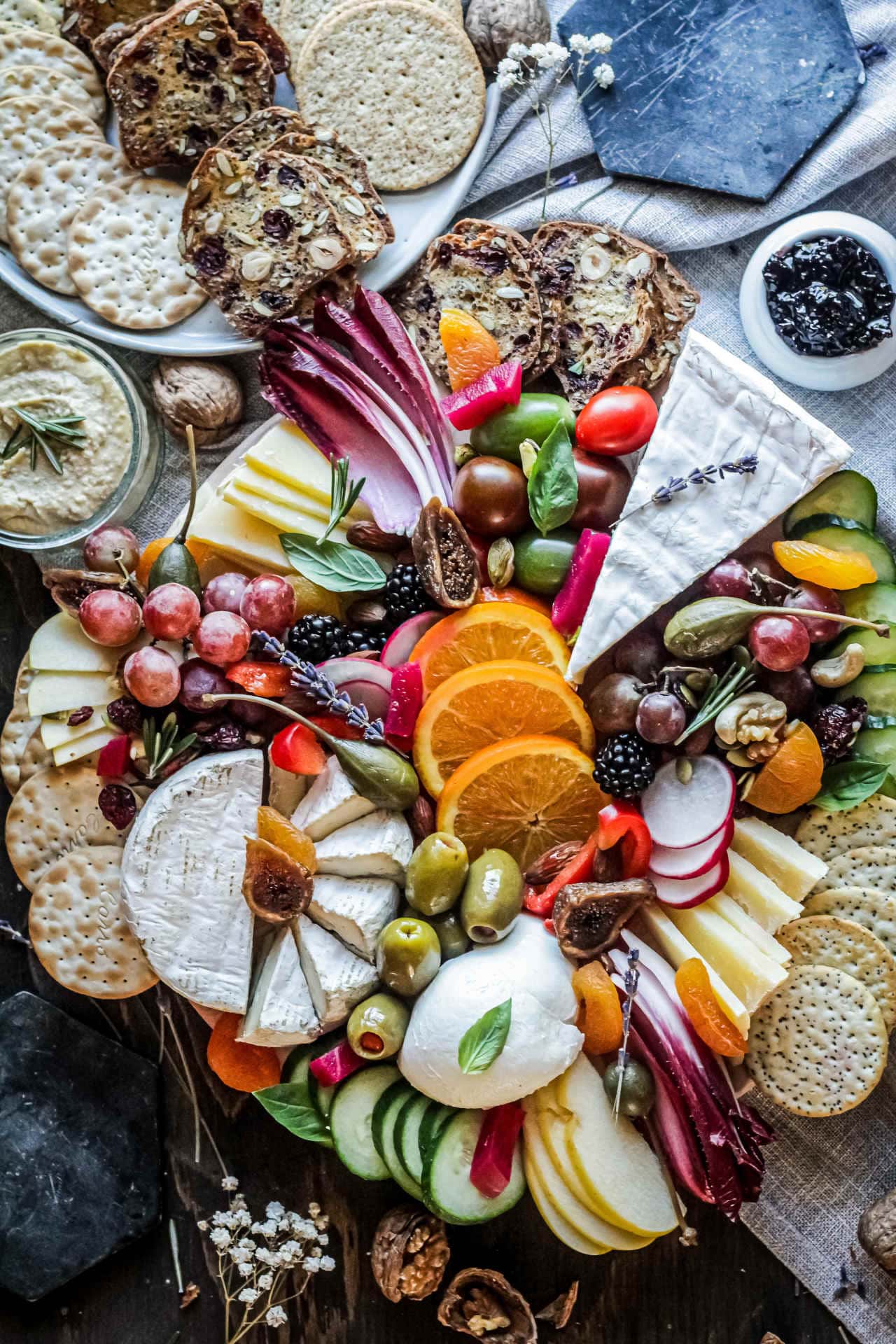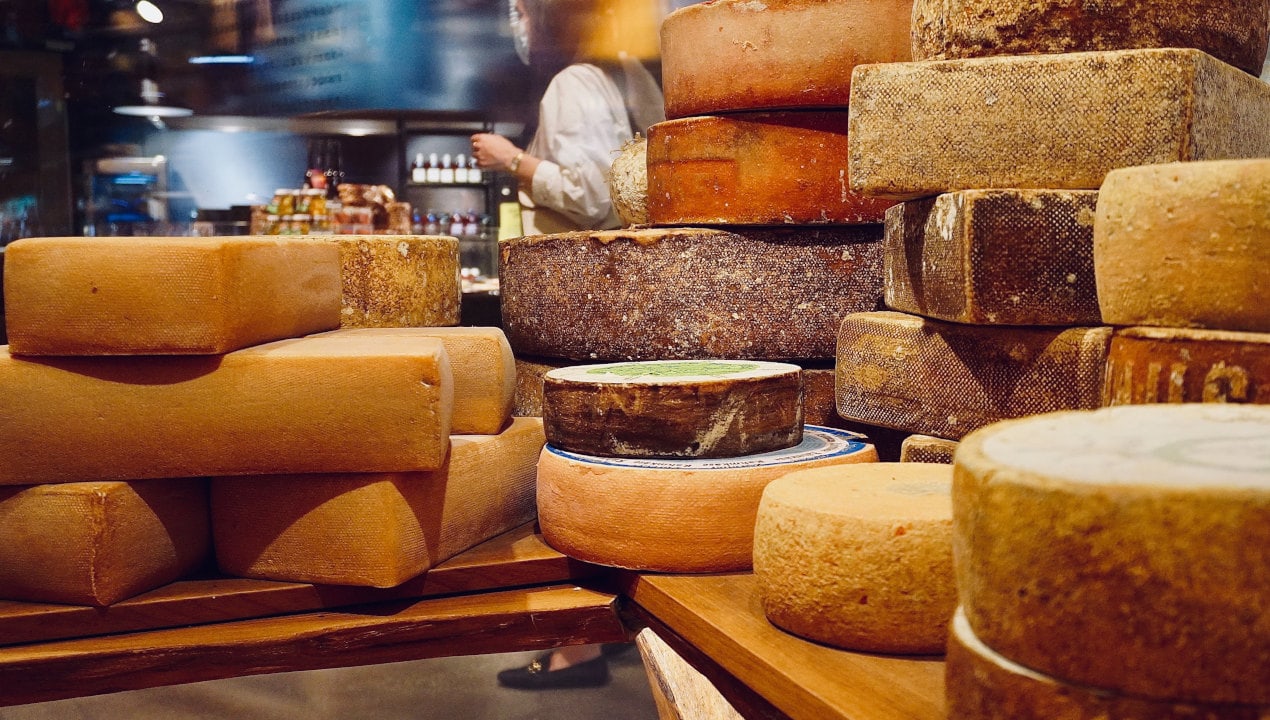Some foods are obviously healthy and others are obviously unhealthy. But what about cheese? Is it fattening junk food? Or can cheese actually be a good source of nutrients?
This post takes a look into the health benefits and risks of cheese to help weigh up whether cheese is a food worth keeping or dropping from your diet.
The health benefits of cheese
There are a number of well researched health benefits to eating cheese:
- Cheese is good for your teeth and bones: Because cheese is rich in calcium and vitamin D, it is very good for our teeth and bones. Studies have linked regular cheese consumption to a reduced risk of cavities and even a reduced risk of developing osteoporosis.
- Cheese is good for your muscles: Cheese is packed with protein, which can be useful when building muscle. Its calcium also makes it good for helping with muscle contraction.
- Cheese can reduce high blood pressure: While many cheeses are high in fat and sodium, studies have found that overall cheese seems to actually have a positive effect on lowering blood pressure due to its calcium content – providing it’s eaten in moderation.

Photo by Melissa Walker Horn on Unsplash
The health risks of cheese
There are also a number of health risks associated with eating cheese:
- Too much cheese is not good for the heart: Although cheese in moderation can lower blood pressure, too much cheese can have the opposite effect due to its sodium and saturated fat content. The fat in cheese also has the potential to build up in arteries causing further cardiovascular issues.
- Certain cheeses may increase the risk of miscarriage: If you’re pregnant, it is often advised that you stay away from certain cheeses like brie and camembert due to their listeria content. Listeria is a bacteria which can cause infections that have been known to cause pregnancy complications ranging from low birth weight infants to miscarriage.
- Some people are allergic/intolerant: Dairy allergies and lactose intolerances are becoming more common and can both be triggered by cheese (although lactose intolerances are less commonly affected by cheese because of cheese’s relatively low lactose content compared to milk). Both can cause unpleasant side effects.
Should you eat cheese?
Most cheeses can be enjoyed as part of a healthy diet. This is because most cheeses are technically whole foods – despite some processing required to turn milk into cheese, most cheeses retain most of their nutrients. These nutrients counterbalance the high fat and salt content.
The key is to eat the right cheeses. Some cheeses contain more fat than others (such as stilton and cheddar), while others are more heavily processed resulting in removal of nutrients in exchange for artificial additives (such as the plastic wrapped cheese slices commonly used on burgers).

Photo by Anto Meneghini on Unsplash
Which cheeses are healthiest?
There are many low fat cheese options that involve minimal processing to preserve their nutrients. Examples include cottage cheese, ricotta, feta and mozzarella. There are also low fat versions of hard cheeses like reduced fat cheddar. If you regularly eat cheese and want to keep your cheese habit healthy, stick mainly to these cheeses.
How much cheese should you eat?
You can eat any type of cheese provided that you eat it in moderation. Experts typically recommend eating no more than 40 grams of cheese per day if you eat it every day. If you’re eating a healthier cheese like cottage cheese, then you can increase this to as much as 250 grams per day.
Top image by Azzedine Rouichi on Unsplash
For more health and wellness tips head here.

Mark Keast has been a journalist for three decades, starting out as a sports writer and editor for one of Toronto’s largest daily newspapers. Recently he has moved into writing on luxury cars, travel, and Toronto luxury real estate. He owns real estate in downtown Toronto as well, so there’s a vested interest there. Mark spends a lot of his work time connecting with realtors and developers across Canada, staying on top of industry developments.
Check out his stories, and email him direct at mkeast@regardingluxury.com








